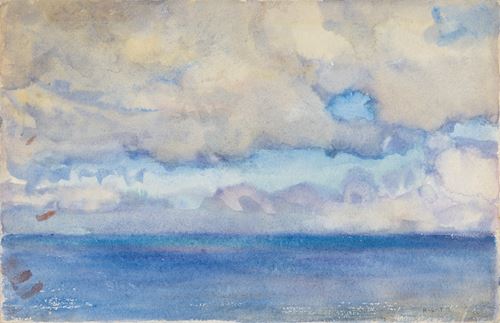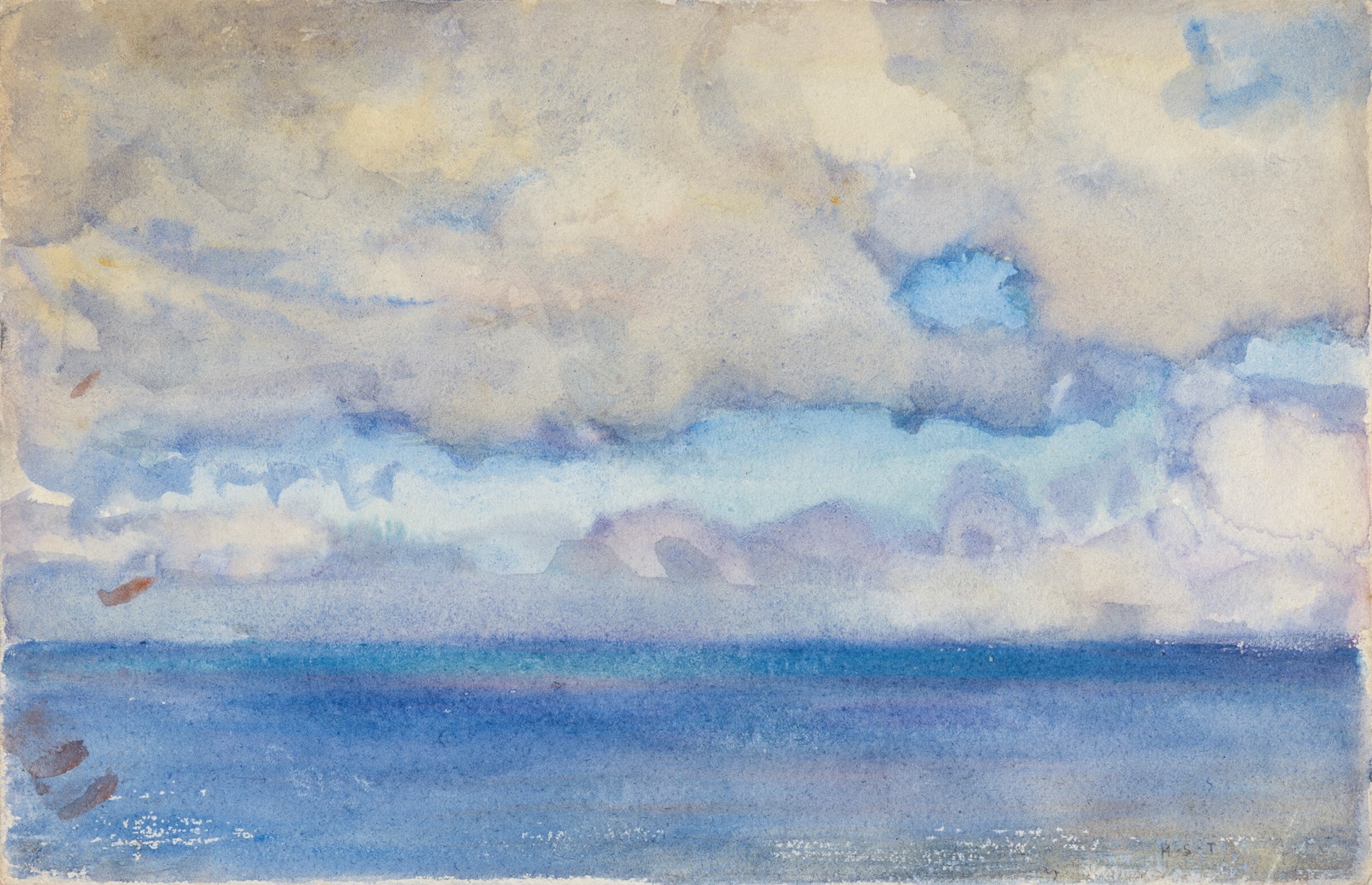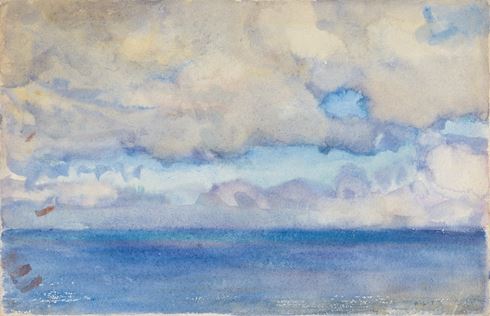
Henry Scott TUKE
York 1858 - Falmouth 1929
Biography
Born into a Quaker family in Yorkshire in 1858, Henry Scott Tuke settled with his family in Falmouth in Cornwall two years later, in 1860. He enrolled in the Slade School of Art in London in 1875, at the age of seventeen, and completed his studies in Europe, exhibiting for the first time at the Royal Academy in 1879. After spending the winter of 1880-1881 in Florence, Tuke studied with Jean Paul Laurens in Paris between 1881 and 1883, when he also met and came under the influence of Jules Bastien-Lepage. On his return to England he joined the little artists’ colony, led by Stanhope Forbes, in the Cornish fishing village of Newlyn. In 1885 Tuke settled for good in Falmouth, where for over forty years he lived in a small cottage on the cliffs south of the town. There he painted on the secluded beaches below the cliffs, where his favoured subjects were of nude youths bathing and swimming, his models depicted with a relaxed and unselfconscious manner. Tuke was also an avid sailor, and many of his paintings depict fishermen and sailors at work, as well as ships and port scenes. In 1886 he purchased an old French brigantine, the Julie of Nantes, which he converted into a floating studio. In the same year he became a founder member of the New English Art Club.
In 1889 Tuke’s painting All Hands to the Pumps was purchased for the Nation by the Tate Gallery’s Chantrey Fund; this was followed in 1895 by a second purchase by the Fund for the Tate, of the painting August Blue. Elected an Associate Member of the Royal Academy in 1900, Tuke became an Academician in 1914. For much of his career, Tuke would spend each winter in London, and would travel to Europe – usually to Italy or the South of France – in the early spring, before spending the summer and autumn months in Cornwall. In 1923, in a change from this usual routine, he was invited to travel to the West Indies, where he produced several fine watercolours. The largest extant collection of Tuke’s work is today in the Royal Cornwall Polytechnic Society in Falmouth, while another significant group is in the collection of the Falmouth Art Gallery.


